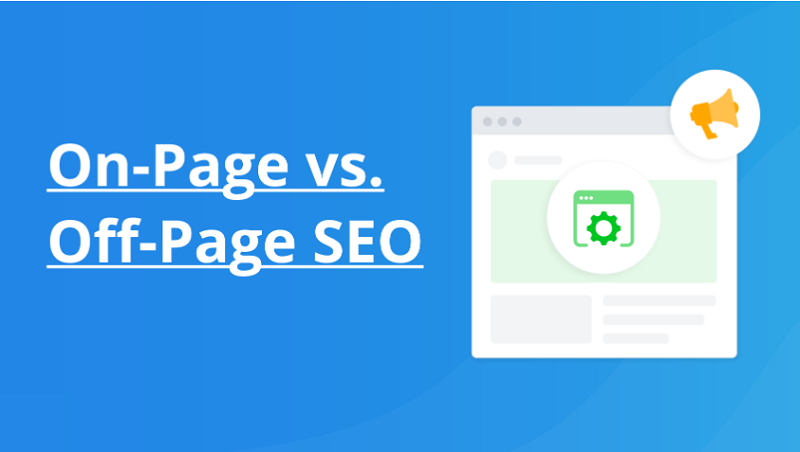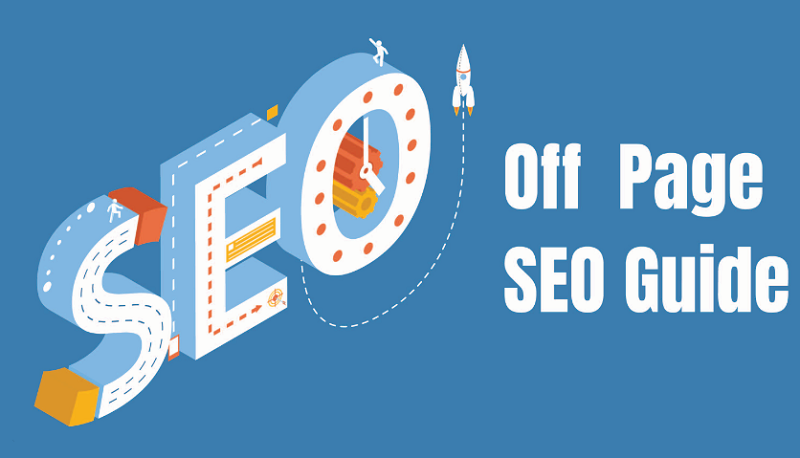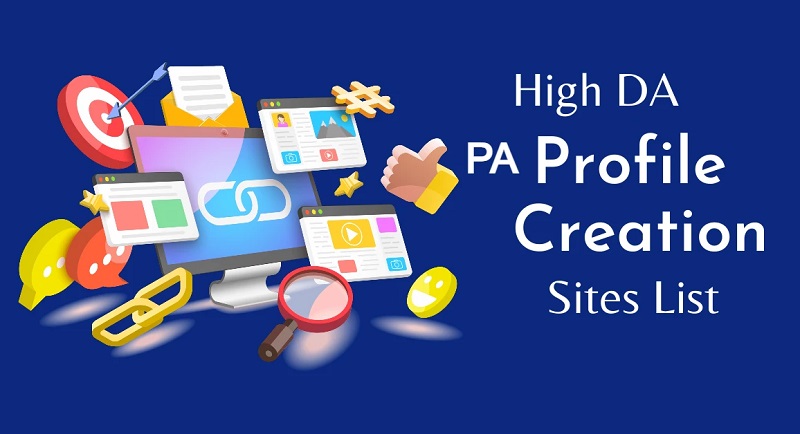In the world of search engine optimization (SEO), off-page optimization plays a crucial role in improving the visibility and authority of a website. While on-page SEO focuses on optimizing the content and structure of a website, off-page SEO involves external factors that contribute to a website’s ranking on search engine result pages (SERPs). In this comprehensive guide to off-page SEO in 2023, we will explore the strategies and techniques that can help boost your website’s online presence and drive organic traffic.
Off Page SEO Guides 2023
Off-page SEO is a set of activities that are performed outside of your website to improve its ranking in search engine results pages (SERPs). These activities can include building backlinks, creating citations, and participating in social media.
In 2023, off-page SEO will continue to be an important part of any successful SEO strategy. However, there are some new trends that businesses should be aware of.
One of the most important trends is the focus on quality over quantity. In the past, it was possible to rank well in SERPs by simply building a large number of backlinks. However, Google is now more sophisticated and can identify low-quality backlinks. As a result, businesses need to focus on building high-quality backlinks from reputable websites.
Another trend is the importance of social media. Social media can be a great way to generate backlinks and improve your website’s visibility. However, it’s important to use social media in a way that is relevant to your target audience and that provides value.
Finally, businesses need to be aware of the importance of user experience (UX). Google is increasingly taking UX into account when ranking websites. This means that businesses need to make sure their websites are easy to use and navigate.
- Build high-quality backlinks. This is still one of the most important off-page SEO activities. However, it’s important to focus on building backlinks from reputable websites that are relevant to your niche.
- Create citations. Citations are mentions of your website on other websites. They can help to improve your website’s visibility in SERPs.
- Participate in social media. Share your content on social media and engage with your audience. This can help to generate backlinks and improve your website’s visibility.
- Create high-quality content. This is one of the most important things you can do for your website’s SEO. If you create high-quality content that is relevant to your target audience, it will be more likely to be linked to by other websites.
- Optimize your website for social media. Make sure your website is easy to share on social media. This includes adding social sharing buttons and making sure your content is formatted for social media.
- Use relevant keywords in your backlinks. This will help Google to understand what your website is about and why it should be ranked for those keywords.
- Build backlinks from a variety of sources. This will help to create a more natural backlink profile and make it less likely that Google will penalize your website.
- Monitor your backlinks. It’s important to keep an eye on your backlink profile and make sure that no new low-quality backlinks are being added.
What Is Off-Page SEO?
Off-page SEO refers to the activities and techniques implemented outside of your website to improve its search engine rankings and increase its online visibility. While on-page SEO focuses on optimizing elements within your website, such as content and meta tags, off-page SEO involves factors external to your site. These external factors include building backlinks, social media signals, online reputation management, and other strategies to enhance your website’s authority and credibility.
The purpose of off-page SEO is to demonstrate to search engines that your website is valuable, trustworthy, and relevant to users. By utilizing off-page SEO techniques effectively, you can improve your website’s rankings in search engine result pages (SERPs) and attract more organic traffic.
One of the key components of off-page SEO is building backlinks from authoritative and relevant websites. Backlinks are essentially links from other websites that point back to your site. When search engines see high-quality backlinks pointing to your website, it indicates that your content is valuable and deserving of higher rankings.
Social media signals also play a role in off-page SEO. When your content receives engagement, such as likes, shares, and comments on social media platforms, it sends positive signals to search engines about the quality and relevance of your content. Additionally, having a strong presence on social media platforms can increase brand awareness and drive traffic to your website.
Online reputation management is another aspect of off-page SEO. Monitoring and managing your online reputation involves actively responding to reviews, addressing customer concerns, and participating in relevant discussions. A positive online reputation can enhance your website’s visibility and trustworthiness in the eyes of both search engines and potential customers.
Overall, off-page SEO is an integral part of a comprehensive SEO strategy. It focuses on building your website’s authority, reputation, and online presence through various external factors. By implementing effective off-page SEO techniques, you can improve your website’s search engine rankings, attract organic traffic, and ultimately achieve your online goals.
Why Are Off-page SEO Important?
Off-page SEO plays a crucial role in improving the visibility, credibility, and authority of your website. While on-page SEO focuses on optimizing the elements within your website, off-page SEO involves external factors that impact your site’s search engine rankings. Here are some key reasons why off-page SEO is important:
- Enhanced Search Engine Rankings: Off-page SEO techniques, such as building high-quality backlinks from authoritative websites, signal to search engines that your website is reputable and relevant. Search engines consider these external signals when determining the ranking of your website in search results. A strong off-page SEO strategy can help improve your website’s position in search engine rankings, leading to increased organic traffic.
- Increased Website Authority: Building backlinks from reputable and relevant websites is a fundamental aspect of off-page SEO. When other trustworthy websites link to your site, search engines perceive it as a vote of confidence and an indication of your website’s authority and credibility. By earning backlinks from authoritative sources, you can strengthen your website’s authority within your industry.
- Expanded Online Visibility: Off-page SEO efforts, such as social media marketing and influencer collaborations, can significantly increase your website’s online visibility. By promoting your content on social media platforms and partnering with influencers, you can expose your brand to a wider audience and drive more traffic to your website. This increased visibility can lead to higher brand recognition, improved brand reputation, and ultimately, more opportunities for conversions and growth.
- Increased Referral Traffic: Off-page SEO techniques, such as guest blogging and social media promotion, can generate valuable referral traffic to your website. When you contribute guest posts on other websites or share your content on social media platforms, you can attract the attention of a new audience who may click on the links and visit your website. This targeted referral traffic can result in higher engagement, longer time spent on your site, and increased chances of conversions.
- Improved Online Reputation: Off-page SEO encompasses online reputation management, which involves monitoring and responding to reviews, addressing customer concerns, and actively participating in discussions. By managing your online reputation effectively, you can build a positive brand image, establish trust with your audience, and differentiate yourself from competitors. A strong online reputation can contribute to higher search engine rankings, as search engines consider user sentiments and brand credibility in their algorithms.
Off-page SEO is essential for enhancing your website’s search engine rankings, authority, and online presence. By implementing effective off-page SEO strategies, such as building quality backlinks, engaging in social media marketing, and managing your online reputation, you can attract more organic traffic, increase brand visibility, and achieve long-term success in the competitive online landscape.
On-Page SEO vs. Off-Page SEO: A Comparison
When it comes to optimizing your website for search engines, two crucial strategies come into play: on-page SEO and off-page SEO. While both are essential for improving your website’s visibility and rankings, they focus on different aspects. Let’s compare on-page SEO and off-page SEO side by side in the table below:
| Details | On-Page SEO | Off-Page SEO |
|---|---|---|
| Definition | Optimization techniques applied directly within your website to enhance its visibility and relevancy to search engines. | Optimization techniques implemented outside of your website to improve its search engine rankings and increase online visibility. |
| Focus | Optimizing elements within your website. | Building website authority and reputation through external factors. |
| Key Aspects | – Keyword optimization <br> – Content quality <br> – Meta tags <br> – URL structure <br> – Internal linking <br> – Website speed and mobile-friendliness | – Link building <br> – Social media marketing <br> – Online reputation management <br> – Influencer marketing <br> – Guest blogging <br> – Online directories and listings |
| Purpose | Make your website more search engine friendly and relevant to users. | Enhance your website’s authority, credibility, and online presence beyond your own site. |
| Impact | Improves on-site user experience and search engine rankings. | Increases website visibility, drives organic traffic, and improves search engine rankings. |
| Examples | Optimizing content, meta tags, and URLs. Improving internal linking structure. | Building high-quality backlinks, engaging on social media platforms, managing online reputation, collaborating with influencers. |
| Importance | Crucial for establishing a strong on-site foundation. | Essential for building website authority and credibility. |
| Longevity | On-page SEO factors can have a more lasting impact. | Off-page SEO efforts may require ongoing maintenance and updates. |
Both on-page SEO and off-page SEO are integral components of a comprehensive SEO strategy. While on-page SEO ensures that your website is optimized for search engines and provides a great user experience, off-page SEO focuses on building your website’s authority and reputation in the digital landscape. Combining these two strategies will help you achieve higher search engine rankings, increase organic traffic, and ultimately succeed in your online endeavors.

15 Important Off-Page SEO Ranking Techniques Need To Know In 2023
1. Introduction to Off-Page SEO
Off-page SEO encompasses all the activities that take place outside of your website but have an impact on its search engine rankings. This includes building backlinks, social media signals, content marketing, influencer partnerships, and more. By engaging in effective off-page SEO techniques, you can enhance your website’s authority and credibility, ultimately driving more organic traffic.
2. The Importance of Backlinks
Backlinks are one of the most crucial factors in off-page SEO. When reputable websites link back to your site, search engines view it as a vote of confidence, signaling that your content is valuable and trustworthy. Focus on acquiring high-quality backlinks from authoritative websites within your industry to improve your website’s visibility and search engine rankings.
3. Guest Blogging for Increased Visibility
Guest blogging involves writing and publishing articles on other websites within your niche. This strategy allows you to tap into the existing audience of these websites, driving traffic back to your own site. When guest blogging, ensure that you provide valuable and relevant content that resonates with the target audience, and include a link back to your website within the author bio or content.
4. Social Media Marketing and Brand Building
Social media platforms offer vast opportunities for promoting your brand and driving traffic to your website. Create compelling and shareable content that encourages engagement and interaction. Build a strong presence on platforms that align with your target audience, and leverage social media to amplify your content and reach a wider audience.
5. Influencer Outreach and Collaboration
Influencer marketing has become a powerful tool for enhancing brand visibility and credibility. Identify influencers within your niche who have a significant following and engage with them to collaborate on content creation, product reviews, or promotions. Partnering with influencers can expose your brand to a new audience and generate valuable backlinks and social media mentions.
6. Online Reputation Management
Maintaining a positive online reputation is vital for the success of any business or website. Actively monitor and manage your online presence by responding to reviews, addressing customer concerns, and participating in relevant discussions. Positive reviews and a strong online reputation can improve your website’s visibility and trustworthiness in the eyes of search engines and potential customers.
7. The Power of Content Marketing
Content marketing remains a cornerstone of off-page SEO. Create high-quality, informative, and engaging content that addresses the needs and interests of your target audience. Publish and promote your content across various channels, including your website, guest blogs, social media platforms, and industry publications. Valuable content attracts backlinks, social shares, and establishes you as an authority in your industry.
8. Harnessing the Potential of Video Marketing
Video content continues to gain popularity, making it an excellent medium for off-page SEO. Create compelling videos that provide value to your audience, such as tutorials, product demonstrations, or industry insights. Share your videos on platforms like YouTube, Vimeo, and social media to increase brand visibility and engage with your target audience.
9. Local SEO Optimization for Targeted Audiences
For businesses targeting a local audience, optimizing for local SEO is essential. Ensure your website is optimized for local keywords, create Google My Business listings, and encourage customers to leave reviews. Additionally, leverage local directories and listings to enhance your website’s visibility in local search results.
10. The Role of Social Bookmarking
Social bookmarking involves saving and organizing website links on social bookmarking platforms. Submitting your website to reputable bookmarking sites can drive traffic and generate backlinks. However, be cautious not to spam or overuse these platforms, as it can have a negative impact on your website’s reputation.
11. Forum and Community Participation
Engaging in online forums and communities relevant to your industry allows you to establish yourself as an expert and build relationships with like-minded individuals. Participate in discussions, answer questions, and provide valuable insights. Include a link to your website in your forum signature or when relevant, driving targeted traffic and generating backlinks.
12. Utilizing Business Directories and Listings
Listing your business in reputable online directories and listings can significantly boost your website’s visibility and credibility. Ensure that your business information is accurate and consistent across all directories, and encourage customers to leave reviews. This will not only enhance your off-page SEO efforts but also attract potential customers searching for products or services within your niche.
13. Mobile Optimization for Enhanced User Experience
With the increasing use of mobile devices, optimizing your website for mobile is crucial. Ensure your website is responsive and provides a seamless user experience across different screen sizes. Mobile-friendly websites are favored by search engines and offer a better user experience, leading to higher engagement and improved rankings.
14. Measuring Off-Page SEO Success
To gauge the effectiveness of your off-page SEO efforts, it is essential to track key metrics. Monitor your website’s organic search traffic, backlink profile, social media engagement, and online reputation. Utilize analytics tools to gain insights into your audience’s behavior, identify successful strategies, and make data-driven decisions to optimize your off-page SEO campaigns.
15. Final Steps.
In the dynamic landscape of SEO, off-page optimization continues to be a critical factor in driving organic traffic and improving search engine rankings. By implementing the strategies outlined in this guide, you can enhance your website’s authority, visibility, and credibility in 2023 and beyond. Remember to adapt your approach to align with evolving industry trends and consumer behaviors to stay ahead of the competition.
Off-Page SEO and Its Impact on Search Engines
Off-page SEO plays a crucial role in how search engines perceive and rank your website. While on-page SEO focuses on optimizing elements within your website, off-page SEO involves external factors that influence your website’s authority and credibility. Let’s explore how off-page SEO works in search engines:
- Backlinks: Backlinks are a fundamental aspect of off-page SEO. Search engines consider backlinks as votes of confidence from other websites. When reputable and relevant websites link to your site, it signals to search engines that your content is valuable and trustworthy. The quality and quantity of backlinks pointing to your website can significantly impact its search engine rankings.
- Website Authority: Off-page SEO helps in building your website’s authority and reputation. When your website earns backlinks from authoritative sources, it increases its credibility in the eyes of search engines. Websites with higher authority are more likely to rank higher in search results, as search engines aim to provide users with the most reliable and relevant information.
- Social Signals: Social media signals, such as likes, shares, and comments, indirectly influence off-page SEO. When your content receives significant engagement on social media platforms, it indicates to search engines that your content is valuable and worth promoting. While social signals may not have a direct impact on search engine rankings, they contribute to increased visibility, brand awareness, and potential for acquiring backlinks.
- Online Reputation: Off-page SEO encompasses online reputation management. Search engines take into account the sentiment surrounding your brand, the reviews and ratings you receive, and how you engage with your audience. Positive online reputation enhances your website’s credibility, which can influence search engine rankings.
- Link Diversity: Off-page SEO emphasizes the importance of having a diverse link profile. Search engines value links from various domains and sources rather than relying on a single source. Having a diverse range of backlinks indicates to search engines that your website is well-regarded across different platforms and industries.
- Anchor Text: The anchor text used in backlinks pointing to your website is another aspect of off-page SEO. When other websites use relevant keywords or phrases as anchor text to link to your site, it signals to search engines that your website is authoritative and relevant for those keywords.
It’s important to note that off-page SEO is an ongoing process. Building and maintaining a strong off-page SEO strategy requires consistent effort, monitoring, and adaptation. By focusing on building quality backlinks, establishing a positive online reputation, and leveraging social media signals, you can improve your website’s visibility, credibility, and search engine rankings.
FAQs About Off Page Search Engine Optimization (SEO)
1. How long does it take to see the impact of off-page SEO?
The impact of off-page SEO can vary depending on several factors, including the competitiveness of your industry, the quality of your backlinks, and the consistency of your efforts. It may take several weeks or months to observe significant results, but consistent and effective off-page optimization can lead to long-term improvements in your website’s search engine rankings.
2. Are social media signals important for off-page SEO?
Yes, social media signals, such as likes, shares, and comments, can positively influence your website’s off-page SEO. These signals indicate to search engines that your content is valuable and engaging, potentially leading to improved visibility and organic traffic.
3. Is it necessary to hire an SEO agency for off-page optimization?
While hiring an SEO agency can provide expertise and save time, off-page optimization can be effectively done in-house as well. It requires a thorough understanding of SEO best practices, consistent effort, and the willingness to adapt to industry changes. Assess your resources and capabilities before deciding whether to outsource or handle off-page optimization internally.
4. Can off-page SEO compensate for poor on-page optimization?
Off-page SEO and on-page optimization go hand in hand. While off-page SEO contributes to your website’s authority and visibility, it is essential to have a solid foundation of on-page optimization. Neglecting on-page elements, such as quality content, proper keyword usage, and website structure, can limit the effectiveness of your off-page efforts.
5. How can I monitor my website’s backlinks?
There are several tools available, both free and paid, that can help you monitor your website’s backlinks. Some popular options include Ahrefs, Moz, SEMrush, and Majestic. These tools provide insights into your backlink profile, including the number of backlinks, their quality, and the referring domains.
Final Thoughts
Off-page SEO is an essential aspect of optimizing your website for search engines and improving its online visibility. By implementing the strategies discussed in this guide, you can enhance your website’s authority, drive organic traffic, and stay ahead of the competition in 2023 and beyond. Remember to adapt your approach to align with industry trends and consistently measure the impact of your off-page SEO efforts.




